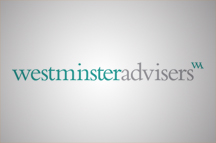 If a week is a long time in politics, then it seems like the 2015 election campaign has already been going for several millennia. Not so – the election campaign officially kicks off today, with a mere 38 days to go until polling day. The Fixed Term Parliament Act has meant that we have had more pre-warning of the election than at any time in history, meaning that not only much of the fun has been taken out of Westminster’s favourite guessing game, but also that all the parties have been on election footing since party conference season.
If a week is a long time in politics, then it seems like the 2015 election campaign has already been going for several millennia. Not so – the election campaign officially kicks off today, with a mere 38 days to go until polling day. The Fixed Term Parliament Act has meant that we have had more pre-warning of the election than at any time in history, meaning that not only much of the fun has been taken out of Westminster’s favourite guessing game, but also that all the parties have been on election footing since party conference season.
With Parliament having been officially dissolved this morning, what are key moments that anyone working in public affairs should be keeping in mind over the next few weeks?
- 30th March 2015: Dissolution of Parliament and the beginning of purdah
- 2nd April: Television debate with the leaders of the Conservatives, Labour, Liberal Democrats, Scottish National Party, Green Party, UKIP and Plaid Cymru
- 7th April onwards: Party manifestos to be published
- 16th April: Final TV debate with the five opposition leaders (Ed Miliband, Nigel Farage, Nicola Sturgeon, Natalie Bennett and Leanne Wood)
- 20th April: Registration deadline for voters
- 30th April: BBC Question Time with separate appearances with David Cameron, Ed Miliband and Nick Clegg
- 7th May: Polling day
- 8th May onwards: Potential negotiations between parties to create a government that can command the majority of the House of Commons (could potentially last up to two weeks, or perhaps longer)
- 11th-13th May: Parliamentary induction for first time MPs
- 18th May: Parliament returns and election of the Speaker
- 27th May: Queen’s Speech and formal State Opening of Parliament
- Late May/early June: Government announced
- Early June: Junior ministerial appointments confirmed
- Early June: Possible Budget
- June onwards: Spending Review discussions between HM Treasury and spending departments
- 19th – 23rd September: Liberal Democrat party conference (Bournemouth)
- 27th – 30th September: Labour party conference (Brighton)
- 4th – 7th October: Conservative party conference (Manchester)
- Late autumn: Spending Review
In addition to the above, we can also be fairly certain of a number of other things that are likely to happen over the coming weeks:
- Election gaffes from the party leaders and other members of the parties, followed by frantic briefing to the press by the respective parties’ PR team
- Photo shoots of the party leaders trying to look both Prime Ministerial and ‘normal’ at the same time, and failing
- Pictures of senior politicians pointing at things whilst wearing hard hats
- Someone saying that the 2015 is the first real social media election
- Boris Johnson saying something unhelpful
- Endless mockery of all the parties’ election posters, with several photo-shopped versions appearing on Twitter
- Photos of politicians with unfortunately crying babies
- Someone from UKIP announcing a policy, and Nigel Farage denying it’s party policy, on the same day
- Politicians awkwardly photographed in front of rude graffiti
- Politician having brain freeze on TV, or being asked the same question 10 times and not answering
- Humorous heckling from an angry general public
- A totally unnecessary comment or interview with Gillian Duffy, culminating with her being asked if she would ‘still be voting labour’
- Nick Clegg saying ‘I’m sorry’
- No-one agreeing with Nick












